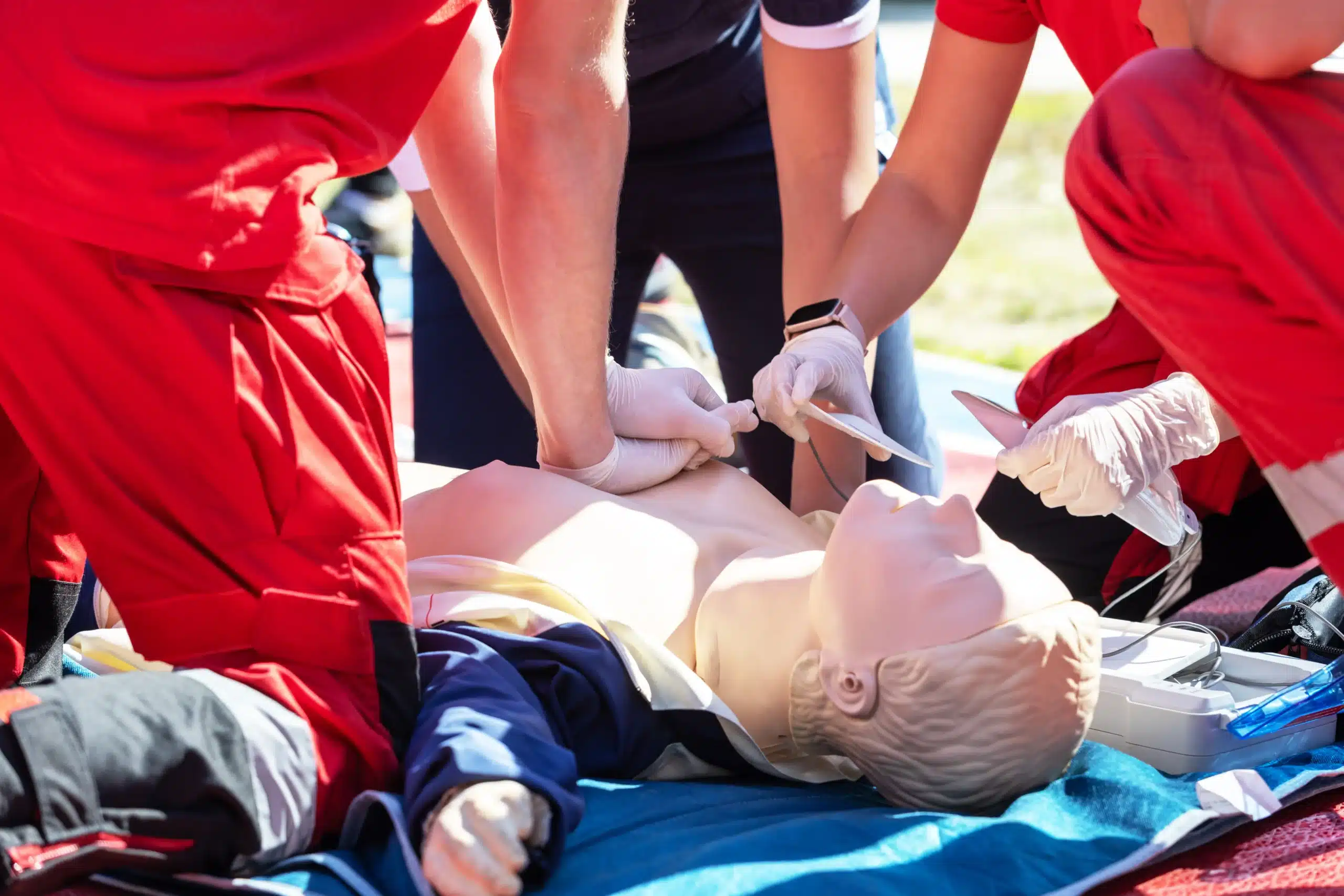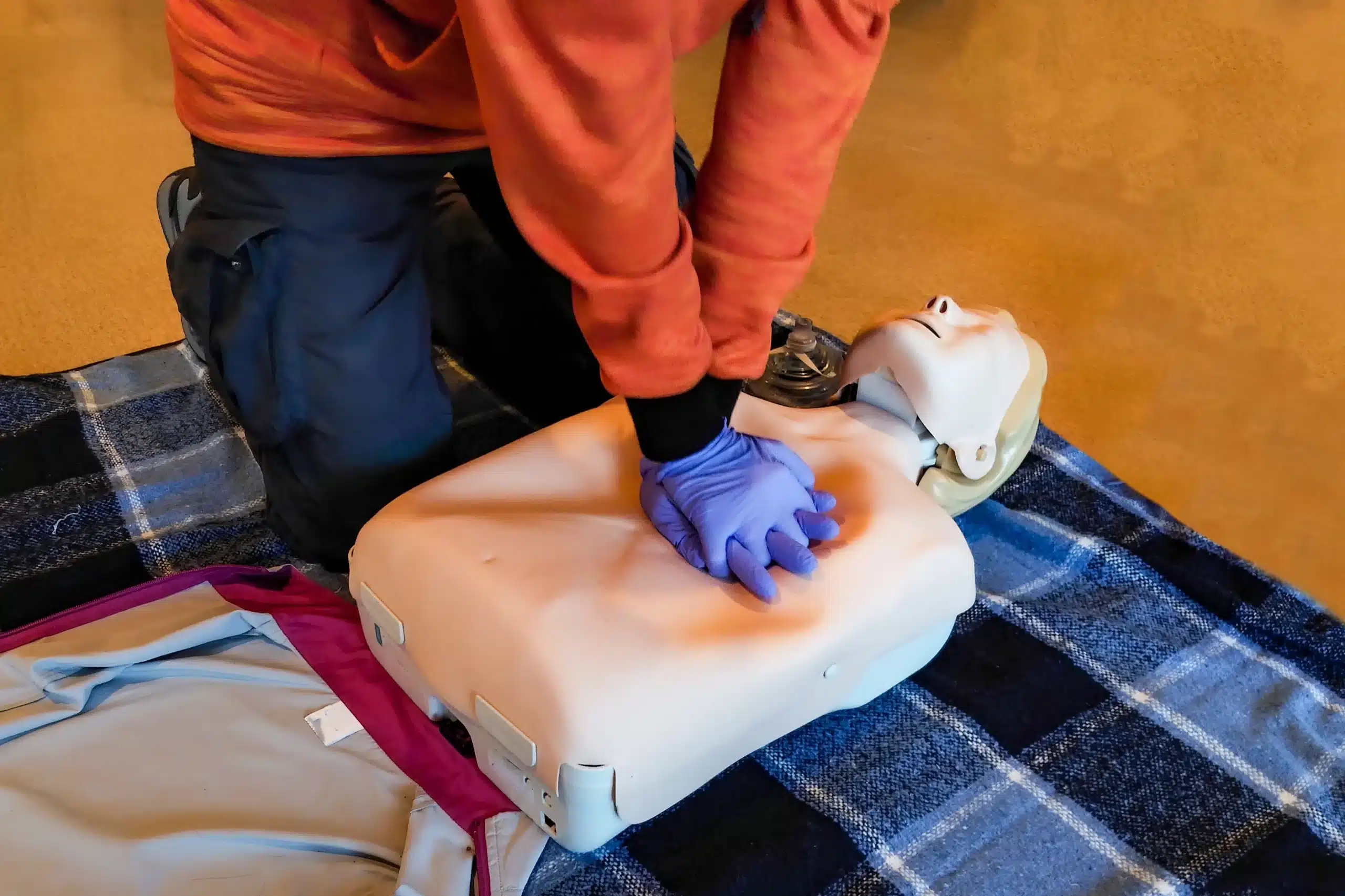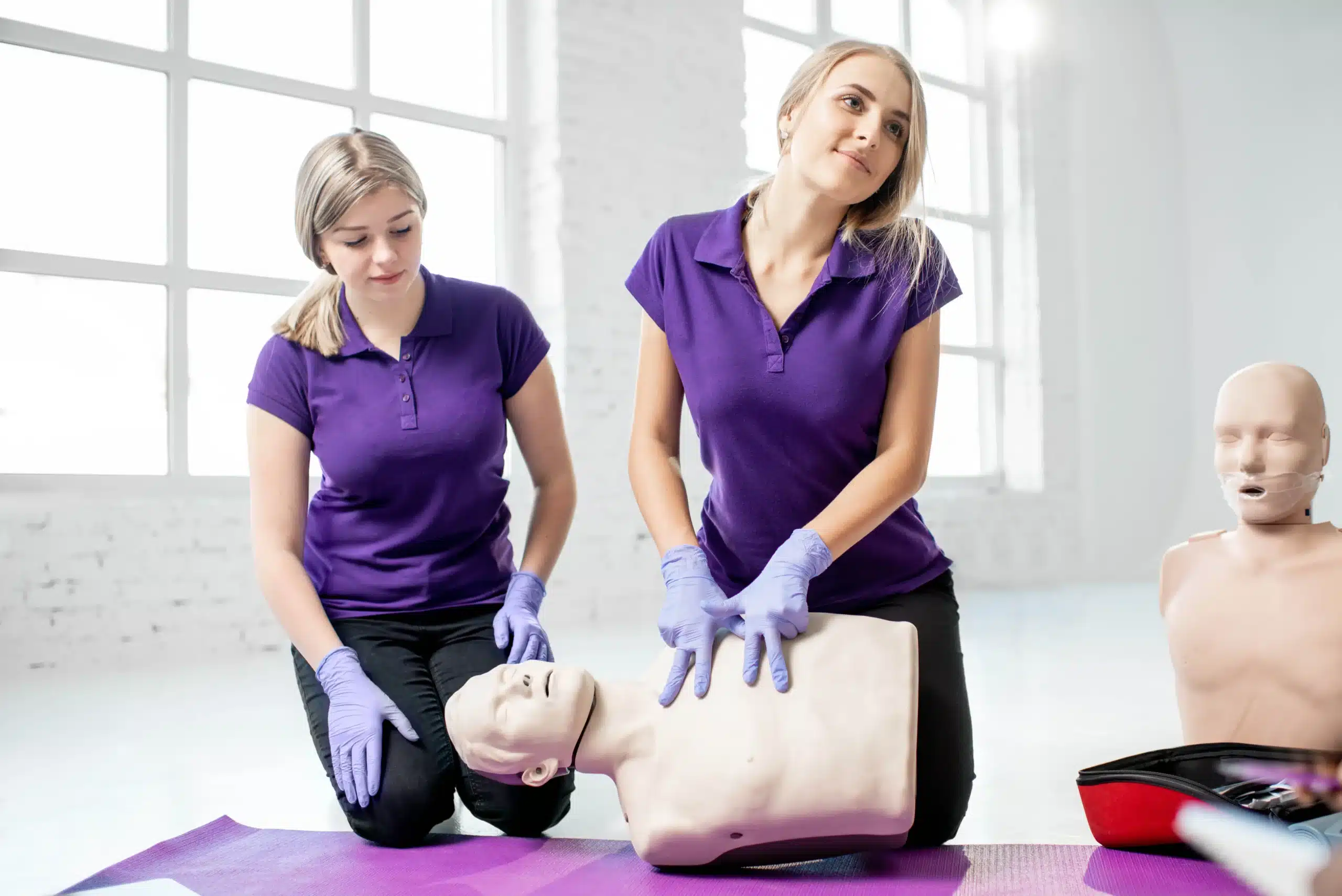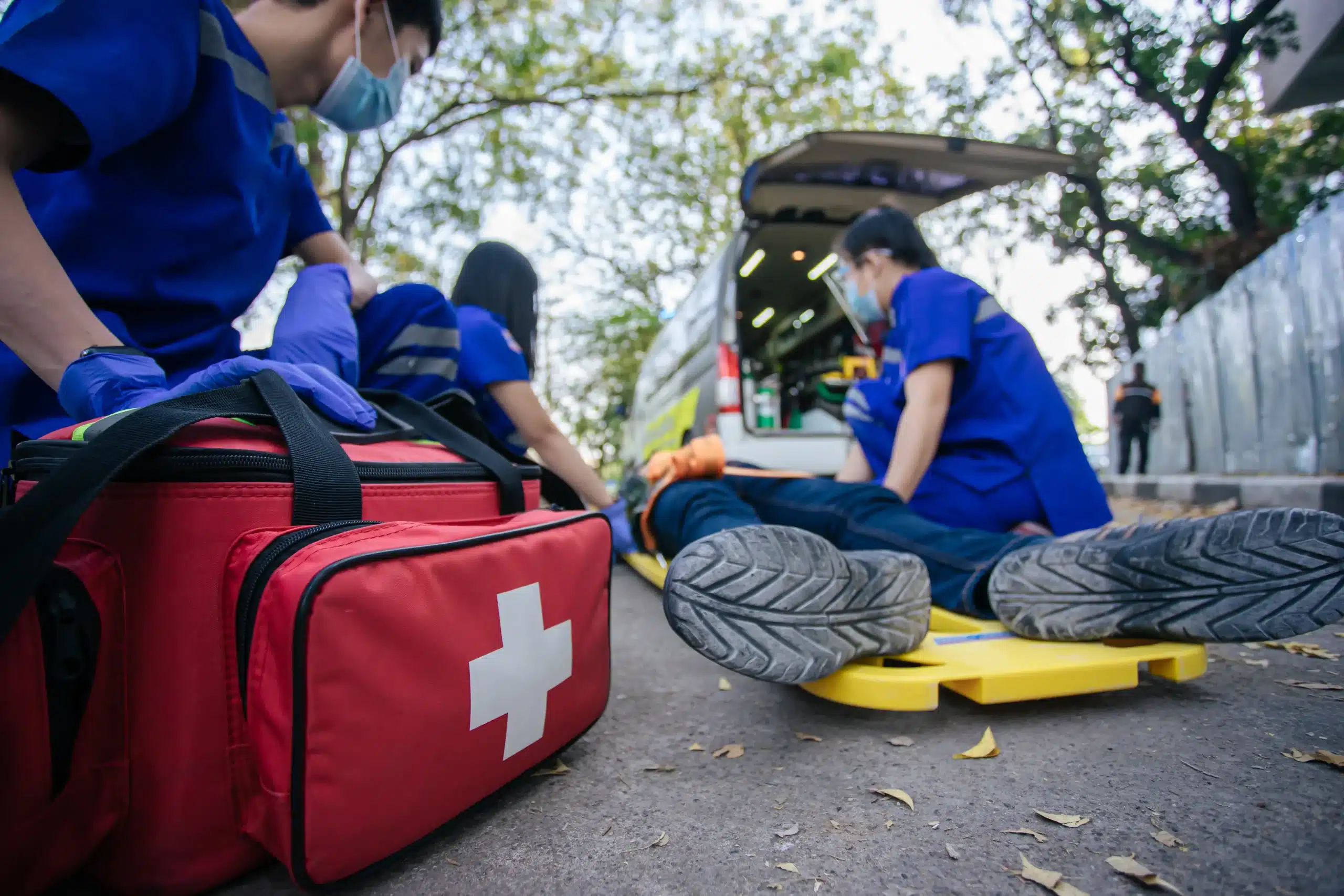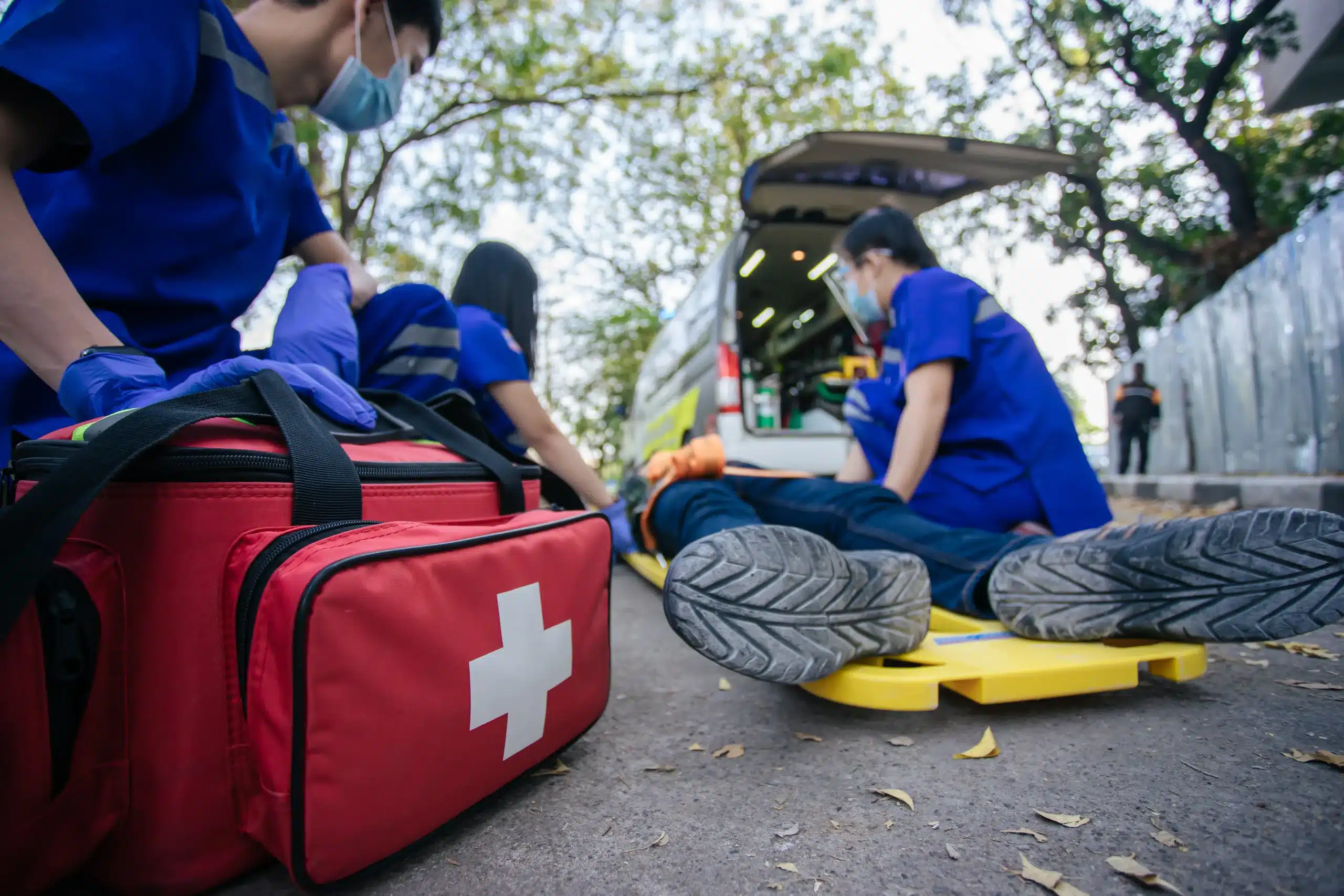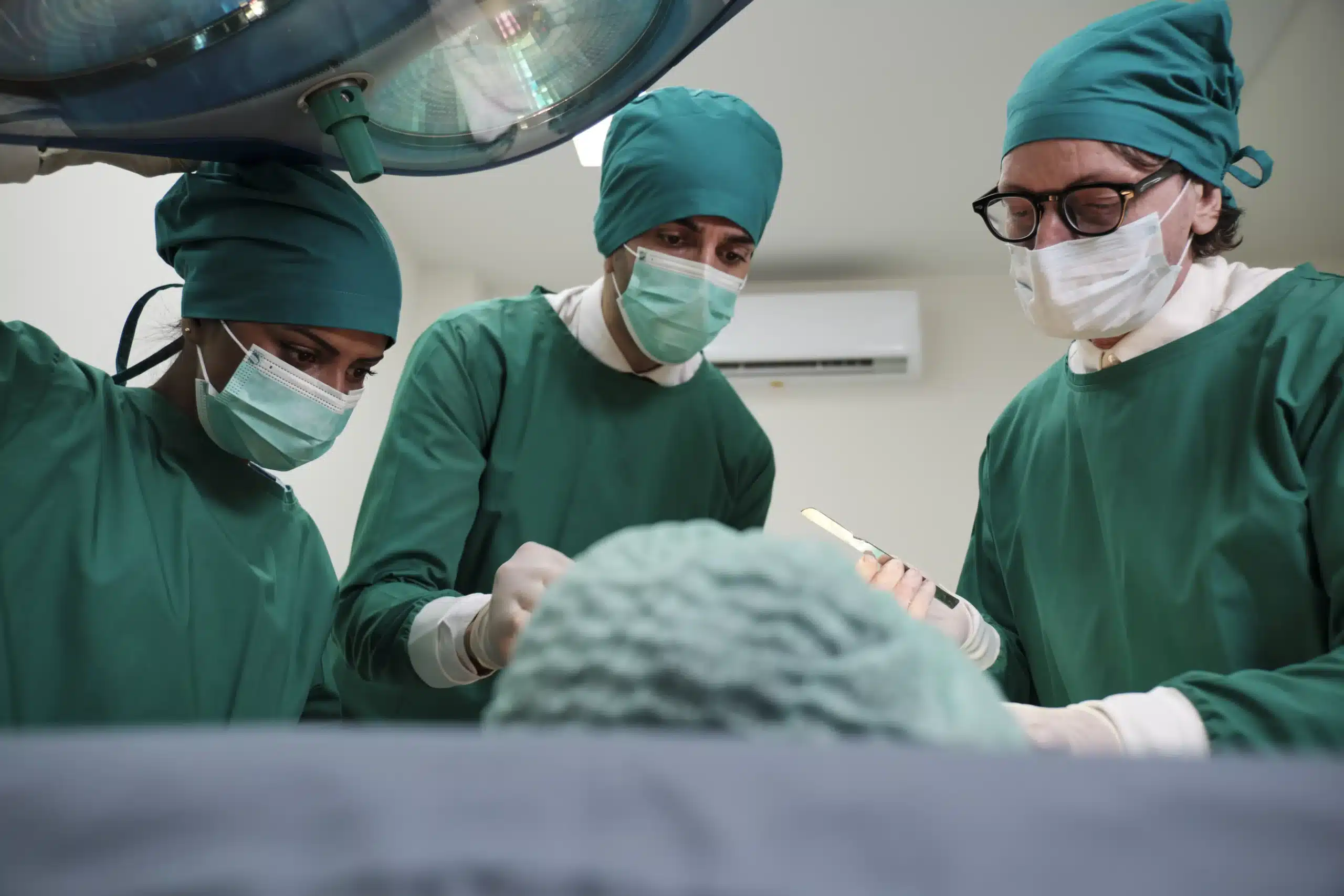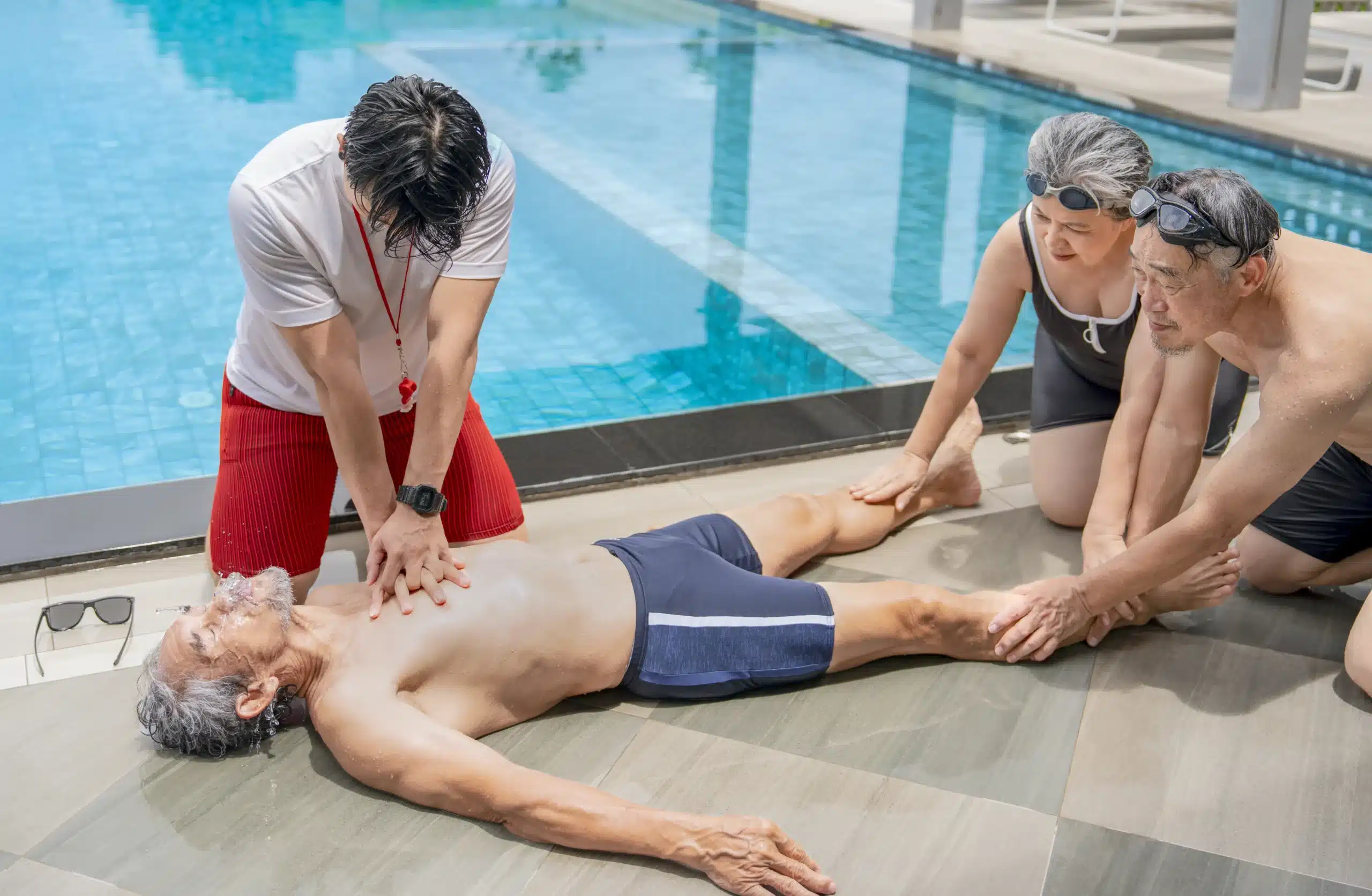As a healthcare professional or someone trained in emergency response, you know how quickly situations can escalate. Maintaining your Basic Life Support (BLS) skills is paramount to providing effective care. If your certification is nearing its expiration date or you’re simply looking to refresh your knowledge, finding a reliable “BLS recertification near me” is likely top of mind. This comprehensive guide will walk you through the process of BLS recertification, explaining the importance of staying current, the different course options available, and how to choose the right provider for your needs.
Key Takeaways
- BLS recertification keeps your life-saving skills current. It’s essential for healthcare providers and anyone who wants to be prepared for emergencies. Choose a convenient course format—in-person, online, or hybrid—that fits your lifestyle.
- Finding the right BLS recertification course involves understanding the costs, time commitment, and different learning formats. Look for accredited providers offering flexible scheduling, experienced instructors, and comprehensive materials.
- Mastering core BLS skills, including CPR, AED use, airway management, and choking relief, empowers you to confidently handle medical emergencies. These skills are invaluable for both professionals and anyone who wants to be prepared to help.
What is BLS Recertification?
Basic Life Support (BLS) recertification is how healthcare providers and other professionals refresh their life-saving skills. It’s a critical update to your BLS certification, ensuring you’re prepared to respond effectively in emergencies. This process typically involves completing a refresher course and passing an exam, covering essential techniques like CPR, AED use, and airway management. But why is recertification so important, and what does it entail? Let’s break it down.
What is BLS & Why Recertify?
BLS certification equips individuals with the skills to respond to life-threatening emergencies, focusing on high-quality CPR, using an AED, and relieving choking. As explained by San Jose CPR classes, it’s a vital credential for healthcare professionals. Your BLS certification is valid for two years. After it expires, there’s no grace period—you’ll need to recertify to continue practicing. This involves taking a recertification course and passing an exam to demonstrate your updated knowledge and skills. Think of it as a tune-up for your life-saving abilities.
Why Stay Current with BLS Skills?
Staying current with your BLS skills is crucial for several reasons. First and foremost, it ensures you can provide safe and effective patient care. As Heart Start CPR points out, maintaining current BLS certification is often a job requirement in healthcare settings. Beyond professional requirements, staying up-to-date with the latest BLS guidelines is essential. These guidelines can change, and recertification courses cover any updates, preparing you for real-world scenarios and the recertification exam itself. Regularly practicing your BLS skills, as suggested by Medicus Training, helps maintain proficiency. Online resources and courses can also help you stay sharp and confident in your abilities. Ultimately, BLS recertification benefits both the professional and the individuals they assist.
Find BLS Recertification Courses Near You
If your BLS certification is expiring, or if you simply want a refresher, you have several options in and around Santa Clara. Knowing where to look can save you time and ensure you receive high-quality training.
American Heart Association (AHA) Courses
In Santa Clara, in-person American Heart Association BLS courses often provide same-day certification, which is helpful if you need to be certified quickly. Many healthcare providers prefer AHA certification because of its wide acceptance.
American Red Cross Options
The American Red Cross also offers BLS training in several formats. You can attend in-person classes or choose blended learning, which combines online coursework with in-person skills sessions. This blended format lets you learn the material at your own pace and then demonstrate your skills in person.
Local Training Centers & Hospitals
Many training centers and hospitals around Santa Clara offer BLS recertification courses. Check with local hospitals or search online for training centers near you. These local courses often accommodate various schedules and needs, making them convenient for busy professionals.
Santa Clara CPR Classes
Santa Clara CPR Classes offers a range of American Heart Association (AHA) certified courses, including BLS. They emphasize convenient scheduling, often with daily availability, and offer a low price guarantee. Serving Santa Clara, Milpitas, and San Jose, their location is convenient for those in the surrounding areas.
Compare Course Formats: In-Person, Online, & Hybrid
Choosing the right BLS recertification course format depends on your learning style, schedule, and preferences. Let’s explore in-person, online, and hybrid options to help you make the best decision.
Benefits of Hands-On Training
In-person BLS recertification offers invaluable hands-on training. You’ll practice essential skills like CPR, AED use, and airway management with certified instructors, receiving immediate feedback and personalized guidance. This direct interaction builds confidence and muscle memory, crucial for effective performance in real-life emergencies. Plus, many in-person courses, including those offered by Safety Training Seminars, provide same-day BLS certification in Santa Clara, streamlining the process. BLS certification equips healthcare providers with life-saving skills and improves patient outcomes.
Advantages of Online Flexibility
Online BLS recertification courses offer unparalleled flexibility. Learn at your own pace, anytime, anywhere, from home or on the go. Access course materials via computer, tablet, or smartphone, eliminating the need for scheduled classroom time. This format is particularly beneficial for busy professionals or those who prefer self-directed learning. Providers like ACLS Medical Training often include all study materials with online purchase, making it a convenient option.
Hybrid Options: Best of Both Worlds?
Hybrid BLS recertification courses combine online and in-person learning. You’ll typically complete the cognitive portion online, at your own pace, then schedule a shorter in-person session to demonstrate your skills. Programs like HeartCode BLS offer this blended approach. The variety of learning formats available makes it easy to find a BLS class in Santa Clara that fits your lifestyle.
BLS Recertification: Cost & Time Investment
Getting recertified in Basic Life Support (BLS) is an investment in your skills and career, so understanding the costs and time commitment is essential. Let’s break down what you can expect.
Average Costs & What Affects Them
BLS recertification costs vary based on several factors, including your location, the training provider, and the course format. You can often find competitive options for CPR, AED, and First Aid certifications, sometimes bundled with BLS for Healthcare Providers. For example, some training centers offer combined courses at prices like $24.99 for CPR/AED/First Aid and $34.99 for BLS Healthcare Provider certification. Santa Clara CPR Classes offers a low price guarantee, ensuring competitive pricing on your BLS recertification.
Course Duration: In-Person, Online, & Hybrid
The time you’ll spend on BLS recertification depends on the course format. In-person courses, like those offered by Safety Training Seminars in Santa Clara, can often provide same-day certification, allowing you to quickly renew your credentials. Online courses, such as the HeartCode BLS course, typically involve two parts: completing online coursework at your own pace and then attending a shorter, in-person skills session. Hybrid courses offer a blend of online learning and in-person practice, giving you flexibility while still ensuring hands-on training. Santa Clara CPR Classes offers a variety of course formats to fit your schedule.
Discounts & Package Deals
Many training providers offer discounts or package deals to save you money on BLS recertification. Santa Clara CPR Classes provides various American Heart Association courses, including BLS, ACLS, PALS, and First Aid, often with convenient daily availability. Check with your chosen provider for discounts for group registrations, returning students, or bundled courses.
Get BLS Recertified: Step-by-Step
Getting recertified in Basic Life Support (BLS) is straightforward. Here’s a step-by-step guide to help you through the process. We’ll cover everything from prerequisites to what to expect on exam day.
Prerequisites & Eligibility
Before you start, make sure you’re eligible. Most organizations, including the American Heart Association and the American Red Cross, require a current BLS provider card or one that has recently expired (within the past 30 days). This demonstrates you have the foundational knowledge to build on. If your card is fully expired, you might need to take the full BLS course again. Check with your certifying organization or contact us for clarification.
Course Content Overview
BLS recertification courses cover essential skills healthcare providers need in emergencies. Expect a refresher on high-quality CPR for adults, children, and infants, including one and two-rescuer scenarios and using bag-mask devices. The course also covers the Chain of Survival, a systematic approach to cardiac arrest, and how to use an AED. You’ll also learn about airway management and different choking relief techniques. Many courses incorporate the latest guidelines from the AHA, so you’re always up-to-date. Check out our BLS course page for specifics.
Exams & Certification
The recertification process typically involves completing the course and then passing a written and skills test. You’ll demonstrate your CPR and AED skills on a manikin. Once you pass, you’ll receive your new BLS provider card the same day. This means you’re ready to respond to emergencies and provide high-quality care. For more information on our certification process and convenient class schedules, visit our RQI classes page.
Choose the Right BLS Recertification Provider
Finding the right BLS recertification provider is crucial for a valuable learning experience. Here’s what to consider:
Accreditation & Recognition
First, confirm the course is accredited by a recognized organization like the American Heart Association. This ensures your BLS certification is valid and accepted across various healthcare settings. A nationally and internationally recognized certification demonstrates you’ve received training that meets established standards. Santa Clara CPR Classes offers AHA-compliant courses, guaranteeing your certification is widely accepted.
Instructor Qualifications & Experience
Look for experienced, certified instructors. BLS is a critical skill in healthcare emergencies, so your instructor’s expertise directly impacts your ability to learn these lifesaving techniques. Instructors should be knowledgeable and possess excellent communication skills to effectively convey this vital information. Check if the training center highlights instructor qualifications—it shows their commitment to quality education. Our instructors at Santa Clara CPR Classes bring years of experience to the classroom.
Course Materials & Resources
Comprehensive course materials are essential for successful recertification. Many providers offer online resources, practice tests, and updated manuals to help you prepare for the exam. Ensure the materials are included in the course fee and easily accessible. Some providers offer fully online courses with all materials included, which can be a convenient and cost-effective option. Contact us to learn more about the resources we provide.
Flexible Scheduling
Balancing work and personal commitments can make scheduling difficult. Choose a provider that offers flexible class times, including evenings and weekends, or convenient online options for self-paced learning. This flexibility ensures you can fit recertification into your busy schedule. Santa Clara CPR Classes offers various schedules to accommodate different needs. We strive to make our courses as accessible as possible.
Key BLS Recertification Skills & Knowledge
BLS recertification courses cover essential lifesaving skills and knowledge crucial for responding effectively to medical emergencies. Let’s break down the core areas covered:
CPR Techniques & High-Quality Chest Compressions
High-quality CPR is the cornerstone of BLS. You’ll review and practice delivering effective chest compressions, ensuring proper depth, rate, and recoil. This hands-on practice helps build muscle memory and confidence. Your BLS recertification also covers minimizing interruptions during compressions to maintain blood flow. Refresher courses emphasize the latest guidelines from the American Heart Association, ensuring you’re up-to-date on best practices for adult, child, and infant CPR.
AED Operation & Integration
AEDs are critical tools in cardiac arrest situations. BLS recertification reinforces how to quickly and correctly use an AED. You’ll learn how to assess the scene, apply the AED pads, and follow the device’s prompts. The training also covers special considerations for using AEDs on children and infants. Understanding how to integrate AED use seamlessly with CPR is a key component of your BLS skills.
Basic Airway Management
Maintaining an open airway is essential for providing oxygen to a person in distress. BLS recertification reviews techniques for opening and maintaining a clear airway, including the head-tilt-chin-lift maneuver. You’ll also learn how to recognize and address airway obstructions and practice using bag-mask ventilation techniques to provide rescue breaths when necessary. These basic airway management skills are vital for effective resuscitation.
Choking Relief
Choking is a common medical emergency that requires prompt action. BLS recertification covers how to recognize the signs of choking in adults, children, and infants. You’ll learn how to perform abdominal thrusts (Heimlich maneuver) and back blows to dislodge obstructions. The training also emphasizes the importance of calling for help immediately and continuing care until advanced medical personnel arrive. Knowing how to provide choking relief can save lives in these critical situations.
BLS Recertification: Common Misconceptions
It’s easy to get confused about BLS recertification requirements. Let’s clear up some common misconceptions surrounding BLS training and recertification.
Who Needs BLS Certification?
Many people think BLS certification is only for doctors and nurses. The truth is, BLS certification is valuable for anyone who might need to respond to a medical emergency. This includes teachers, coaches, lifeguards, and even parents. Essentially, anyone who wants to be prepared to help in a crisis can benefit from BLS training. CPR skills are valuable for personal safety and community well-being.
How Often Should You Recertify?
Another misconception is that your BLS certification is valid indefinitely. To stay up-to-date on the latest guidelines and techniques, you actually need to recertify every two years. This ensures your skills are fresh and you’re ready to respond effectively during a medical emergency.
Are Online Courses Credible?
Some are hesitant about the validity of online BLS courses. Rest assured, many accredited organizations, including the American Heart Association, offer online courses that meet the same standards as traditional classroom training. Just be sure to choose a program from a reputable provider. At Santa Clara CPR Classes, we offer both online and in-person options to fit your learning style and schedule.
Is BLS Important for Non-Healthcare Professionals?
Absolutely! Emergencies can happen anytime, anywhere, and having the skills to perform BLS can be lifesaving, regardless of your profession. Knowing how to perform CPR, use an AED, and provide basic airway management can make a critical difference while waiting for professional medical help to arrive. Learn more about our BLS certification courses and empower yourself to respond confidently in an emergency. These skills are invaluable life tools for everyone.
Related Articles
- BLS Certification in San Jose: Your Complete Guide – Santa Clara CPR Classes
- BLS Renewal in Milpitas: Your Complete Guide – Santa Clara CPR Classes
- BLS Classes in Santa Clara: The Complete Guide – Santa Clara CPR Classes
- BLS Certification in Santa Clara: A Guide for Healthcare Providers – Santa Clara CPR Classes
- BLS HeartCode San Jose: Your Guide to Certification – Santa Clara CPR Classes
Frequently Asked Questions
How long is my BLS certification valid? BLS certification is typically valid for two years. After this period, you’ll need to recertify to keep your skills current and maintain your credentials.
What’s the difference between in-person and online BLS recertification? In-person classes offer hands-on practice and direct interaction with instructors, while online courses provide flexibility and self-paced learning. Hybrid courses combine the benefits of both formats. The best choice depends on your learning style and schedule.
How much does BLS recertification cost? Costs vary depending on the training provider, location, and course format. Look for providers like Santa Clara CPR Classes that offer a low price guarantee to ensure you’re getting a competitive rate. Also, check for potential discounts or package deals.
What if my BLS card is already expired? If your card is expired, you might need to take the full BLS course again rather than a recertification course. It’s best to check with your certifying organization or the training provider to determine the best course of action.
Where can I find BLS recertification courses near me? Several options are available, including the American Heart Association, the American Red Cross, local hospitals, and training centers like Santa Clara CPR Classes. Online searches and checking with local healthcare facilities can help you find convenient courses in your area.
